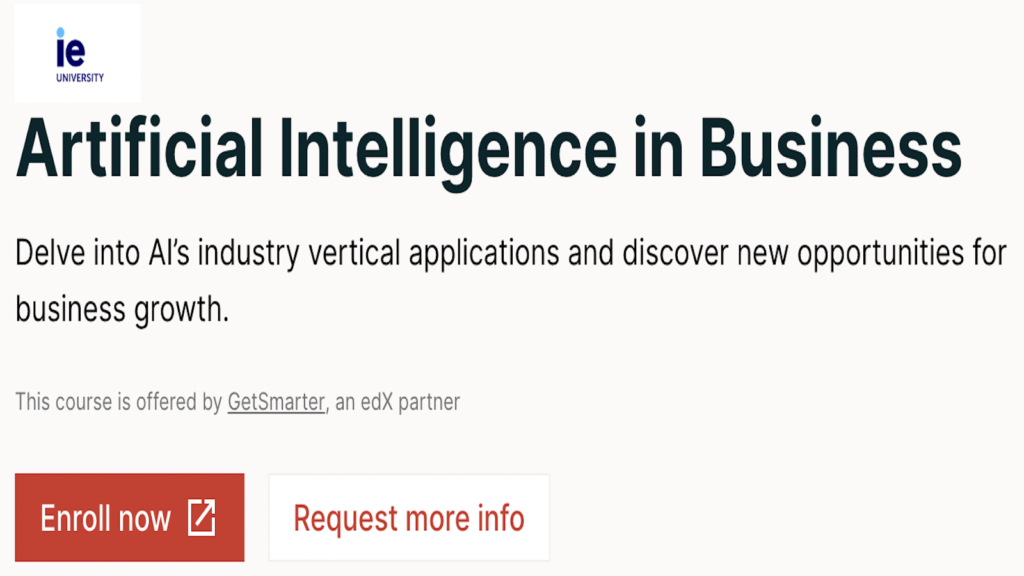Steering Complexity: AI as a Corporate Problem Solver
In this day's quickly changing business environment, organizations face an array of complex challenges that require creative answers. The integration of AI is becoming as crucial element in navigating complex situations. By harnessing the power of AI, companies can streamline their operations, enhance decision-making strategies, and finally boost their profits.
While companies strive to remain relevant, the benefits of utilizing AI go beyond mere efficiency. From automating boring jobs to providing profound understanding from large data sets, AI empowers businesses to focus on strategic initiatives to drive growth. This capability to forecast market trends and consumer actions with accuracy enables companies to tailor their products, create more robust relationships, and foster a environment of continuous advancement.
Understanding Artificial Intelligence in Commerce
AI has been revolutionizing our business environment through offering new answers to complicated problems. Businesses have been increasingly embracing artificial intelligence tools in order to boost workplace performance, refine decision-making, plus enhance client satisfaction. The incorporation of AI enables organizations to assess large quantities of information quickly, providing understandings which might have been before inaccessible. This capability to harness data effectively enables organizations and remain competitive in their swiftly changing industry.
One of the most significantly benefits of Artificial Intelligence in commerce lies in its ability for automating tasks. By the automation of routine activities, companies can liberate valuable employee capital to focus on more strategic tasks. Such an approach not only boosts productivity and reduces the chances of mistakes. While AI continues to evolve, the applications in automating processes across various industries are increasingly more sophisticated, leading to major cost savings and enhanced work processes.
Moreover, AI improves customer engagement and interaction. Tailored interactions driven by artificial intelligence technologies allow businesses and tailor the offerings for specific preferences, resulting in higher client contentment and loyalty. Whether it is via chatbots offering instant assistance and recommendation systems recommending items, AI helps create an smooth plus meaningful buyer experience. While businesses utilize these technologies, they are able to build stronger relationships with their customers and they can promote sustainable development.
Actual Applications of Artificial Intelligence
AI has revolutionized numerous fields by enhancing operations and enhancing the decision-making process. In medicine, artificial intelligence is being employed to examine medical images, forecast results, and tailor therapeutic strategies. By rapidly processing large amounts of information, artificial intelligence helps identify anomalies that may be ignored by manual scrutiny, leading to earlier diagnoses and more effective treatments. This innovation not only boosts the quality of patient care but also improves operational effectiveness within medical institutions.
In the field of finance, AI plays a key role in identifying fraud and mitigating risks. By employing ML models, banks can evaluate transaction behaviors in immediate, flagging suspicious activities that may suggest wrongdoing. Additionally, AI helps in credit scoring by assessing a wider range of variables, allowing for higher assessments of an individual’s credit standing. This not only shields customers but also bolsters the overall financial framework.
Stores are also making use of AI to improve customer experiences. Through data analysis, AI can anticipate shopping preferences, tailor suggestions, and enhance inventory management. AI-powered chatbots powered by artificial intelligence provide round-the-clock service, answering queries and facilitating transactions, which results in greater satisfaction among customers. By incorporating artificial intelligence, businesses are capable of streamline business operations and create a better customer journey for their clients.

Issues and Moral Implications
As companies gradually incorporate AI into their operations, they encounter numerous obstacles that demand careful management. One notable challenge is the insufficiency of high-quality data. AI systems rely heavily on data to interpret and make decisions, and if the data is biased, insufficient, or poorly structured, the results can be detrimental. Companies must invest in data governance and ensure they have trustworthy and representative datasets to fuel their AI projects effectively.
Another essential aspect revolves around job loss. While AI can enhance productivity and create new types of employment opportunities, it also poses the threat of automation resulting in job elimination in certain sectors. Businesses must strike a equilibrium between leveraging AI for efficiency and guaranteeing their workforce is equipped for the future. This ent ai ls committing resources in reskilling programs and fostering a culture of flexibility among employees.
Ethical concerns regarding AI usage also require attention. Issues such as clarity, responsibility, and privacy are vital. Companies must formulate ethical guidelines to govern their AI operations, ensuring that systems are used responsibly and that decisions made by AI are clear to consumers. Omission to tackle these moral issues can lead to mistrust among consumers and damage the brand's credibility.